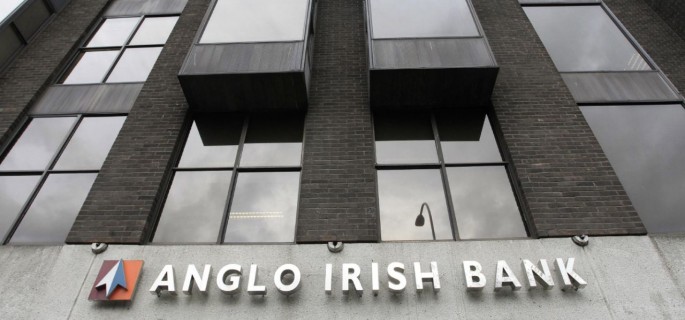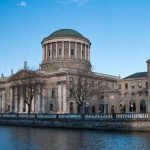3 ex-bankers jailed over Ireland’s biggest accounting fraud

Three former senior bankers were sent to prison Friday for their roles in concealing the loss of billions in deposits at the defunct Anglo Irish Bank, the biggest accounting fraud in Irish corporate history.
Judge Martin Nolan told the trio — former Anglo executives Willie McAteer and John Bowe and former Irish Life and Permanent chief executive Denis Casey — they were guilty of committing “sham transactions” designed to inflate Anglo’s deposit levels by 7.2 billion euros ($8 billion) in the Dublin bank’s 2008 earnings report.
Lawyers for the men argued that government and regulatory officials had spurred them to collude on transfers to maintain market confidence in Irish banking, but the judge said all three had chosen to employ “dishonest, deceitful and corrupt” tactics.
“I can appreciate the desperation of the moment. I can appreciate that everyone at Anglo wanted to save the bank. But saving the bank isn’t everything,” Nolan said.
Casey received a prison sentence of 2 years, 9 months. McAteer received 3 ½ years, Bowe two years. All were convicted last month of conspiracy to defraud and now have 28 days to lodge an expected appeal. All three stared at the courtroom floor during the verdict.
Casey’s bank supplied funds that Anglo falsely claimed as new customer deposits in full-year results to shareholders. The move was designed to cloak the funding crisis then enveloping Anglo, which had spent more than a decade aggressively betting on Ireland’s property boom — a house of cards about to come crashing down amid the global credit crisis that year.
Investigators found that the 7.2 billion euros spent barely one day on Anglo’s books before being transferred back to Irish Life and Permanent. Anglo used the ruse to help reassure shareholders, set to lose their investment as Anglo shares plunged, that the bank remained solid.
Instead, Ireland’s government discovered in October 2008 that Anglo was on the verge of bankruptcy and declared, in event of an Irish bank failure, that the taxpayer would step in to repay all depositors and — devastatingly — all bondholders. That miscalculated confidence-boosting measure put the state on the hook for nightmarish bills as the true scale of Anglo’s toxic debt mountain started to emerge.
Anglo was nationalized in 2009 and gradually dissolved. Most of its malfunctioning property-loan portfolio was transferred to a new state “bad bank.” Ireland absorbed paper losses at Anglo and four other bailed-out banks that drove the 2010 national deficit to a post-war European record of 32 percent of economic output, destroying the country’s credit rating and forcing it to seek a three-year international bailout.
Anglo’s cost to taxpayers long was estimated at close to 30 billion euros, nearly half the size of Ireland’s own bailout. But Ireland is clawing back billions as its “bad bank” auctions off sites and developments to a revived property market.
Irish Life and Permanent, like Anglo, succumbed to eventual nationalization. The government chopped the bank in two, sold off the profitable Irish Life wing in 2013 and retained its retail banking unit, Permanent TSB, which remains hobbled by a portfolio of loss-making mortgages.
Anglo’s two most senior figures, former chairman Sean FitzPatrick and chief executive David Drumm, remain free on bail pending their own trials for fraud and other offenses expected to run separately into 2017 at least. They face dozens of charges connected to a string of accounting scandals.
These include the concealment of tens of millions’ worth of personal loans to Anglo executives that were never repaid and other undisclosed loans exceeding 600 million euros ($700 million) to 16 top clients on condition they used the money to buy Anglo’s freefalling shares. That stock became worthless in 2009.
Drumm fled to the United States in 2009, failed to win bankruptcy protection there after a judge ruled he used his wife to shelter assets, and spent five months in a U.S. jail while unsuccessfully fighting extradition back to Ireland in March.
Source: Yahoo Finance





























